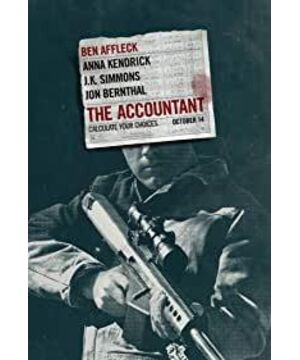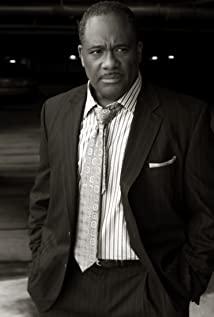I saw this movie by accident, no matter whether the narrative idea is plateau or not, but the richness of the story is fascinating, unlike some mainstream movies, which are touched for a moment, and then never revisited again.
The classic of film language lies in its complexity, the outline of the story hidden in the details, you can only see it with a second brush. The shootout at the beginning of the story, the treatment of the boy, has already begun to lay the groundwork. Different from the linear narrative, the multi-line narrative style can only glimpse all the cause and effect at the end: the male protagonist.
What the story tells is his story, from childhood to today. The male protagonist is the older brother of the two brothers, the mentally troubled child. His parents divorced because of his education problems when he was young. When he was young, he lost his father because of his mother's funeral, and his father died while blocking a gun for him. When he was trapped in prison, he met an old man who was also a teacher and friend. He taught him to observe words and expressions and superb accounting skills. For him, learning to communicate with people normally is the most critical step. But soon the old man came out and was killed by the underworld. He avenged his teacher and killed several members of the underworld. Here is the scene at the beginning of the story. This is the main line of the story, and the male protagonist has since embarked on the road of underworld accounting.
Another story is: the old Treasury Department official Regin's story of looking for a successor, I understand it, I feel that his first is to let the black girl know about the whistleblower, and the second is to see if her ability is sufficient. I deeply thought that the director was exploring from the perspective of this black girl, enriching the story of the male protagonist, and then enriching the character of the male protagonist through the words of the old Ministry of Finance official Lei Jin.
The details are as follows: the AI female voice in the play is another autistic child that he knew when he was young; the doll of his youth was treasured in the RV; the nursery rhyme he often recited when he was under pressure led him to find his long-lost brother …
Like a jigsaw puzzle, you find the details scattered in the corners, push aside the stories that were foggy at the beginning, and get a glimpse of the whole story in the sporadic fragments. It is really the devil who hides in the details, gathers the sand into a tower, and finally props up the whole story, so that this story is not only a monotonous melody of heroes saving beauty, not only the pleasure and grudge of a revenge shootout, but also the self-redemption of the male protagonist. Growing up, how do we understand ourselves, accept our differences, and finally reach a reconciliation process with ourselves. The male protagonist's father undoubtedly loves him. In my opinion, because the male protagonist is different, he is destined to be excluded, so he must learn the skills to protect himself. Even if you use violence to obtain it, people will not be bullied because of your weakness. And accept you, the world is full of stories of the weak and the strong. Although it is cruel, it is the father who gives his children the best protection. He taught the male protagonist to choose, not to accept fate.
As everyone thought, if the male protagonist stayed in the treatment center that summer, maybe the story would have to be rewritten, but there is no if.
To quote Ellison Dessman in the '95 Pride and Prejudice documentary, this story is like a box of chocolates that can make your index finger twitch when you open it. It's all there.
View more about The Accountant reviews











